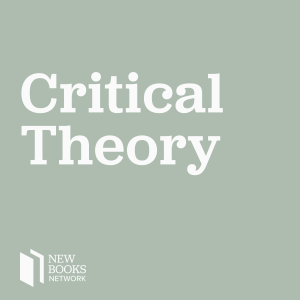
Sara Salem, "Anticolonial Afterlives in Egypt: The Politics of Hegemony" (Cambridge UP, 2020)
 2021-02-09
2021-02-09
Download
Right click and do "save link as"
In this conversation, Sara Salem, author of Anticolonial Afterlives in Egypt: The Politics of Hegemony (Cambridge University Press, 2020), talks to host Yi Ning Chang about temporality, capitalism, and hegemony in her history of Egypt’s two revolutions. From Gamal Abdel Nasser to Gramsci and Fanon, from revolution to the coronavirus pandemic, Sara reflects on the unfinished project of Nasserism, what it has come to mean for Egypt, and what its coming apart tells us about our own moment in history.
Sara Salem’s Anticolonial Afterlives in Egypt: The Politics of Hegemony was published by Cambridge University Press in 2020. This book builds its analysis of the afterlives of Egypt’s moment of decolonisation through an imagined conversation between Antonio Gramsci and Frantz Fanon around questions of anticolonialism, resistance, revolution and liberation. Anticolonial Afterlives argues that the Nasserist project – created by Gamal Abdel Nasser and the Free Officers in 1952 – remains the only instance of hegemony in modern Egyptian history, and that the 2011 revolution signified the end-point of its decline, decades after it was created. Nasserism was made possible in and through local, regional and global anticolonial politics, even as it reproduced colonial ways of governing that reverberate into Egypt’s present. Anticolonial Afterlives explores these tensions through Gramsci and Fanon, foundational theorists of anti-capitalism and anticolonialism, and in doing so engages with some of the problematics around applying Gramsci’s thought in contexts such as Egypt and thinking about Fanon’s writing in relation to anticolonialism today.
Yi Ning Chang is a PhD student in political theory at the Department of Government at Harvard University. She works on the history of contemporary political thought, postcolonial theory, and the global histories of anticolonialism and anti-imperialism in Southeast Asia. Yi Ning can be reached at yiningchang@g.harvard.edu.
Learn more about your ad choices. Visit megaphone.fm/adchoices
view more
More Episodes
012345678910111213141516171819
Create your
podcast in
minutes
- Full-featured podcast site
- Unlimited storage and bandwidth
- Comprehensive podcast stats
- Distribute to Apple Podcasts, Spotify, and more
- Make money with your podcast
It is Free
- Privacy Policy
- Cookie Policy
- Terms of Use
- Consent Preferences
- Copyright © 2015-2024 Podbean.com





